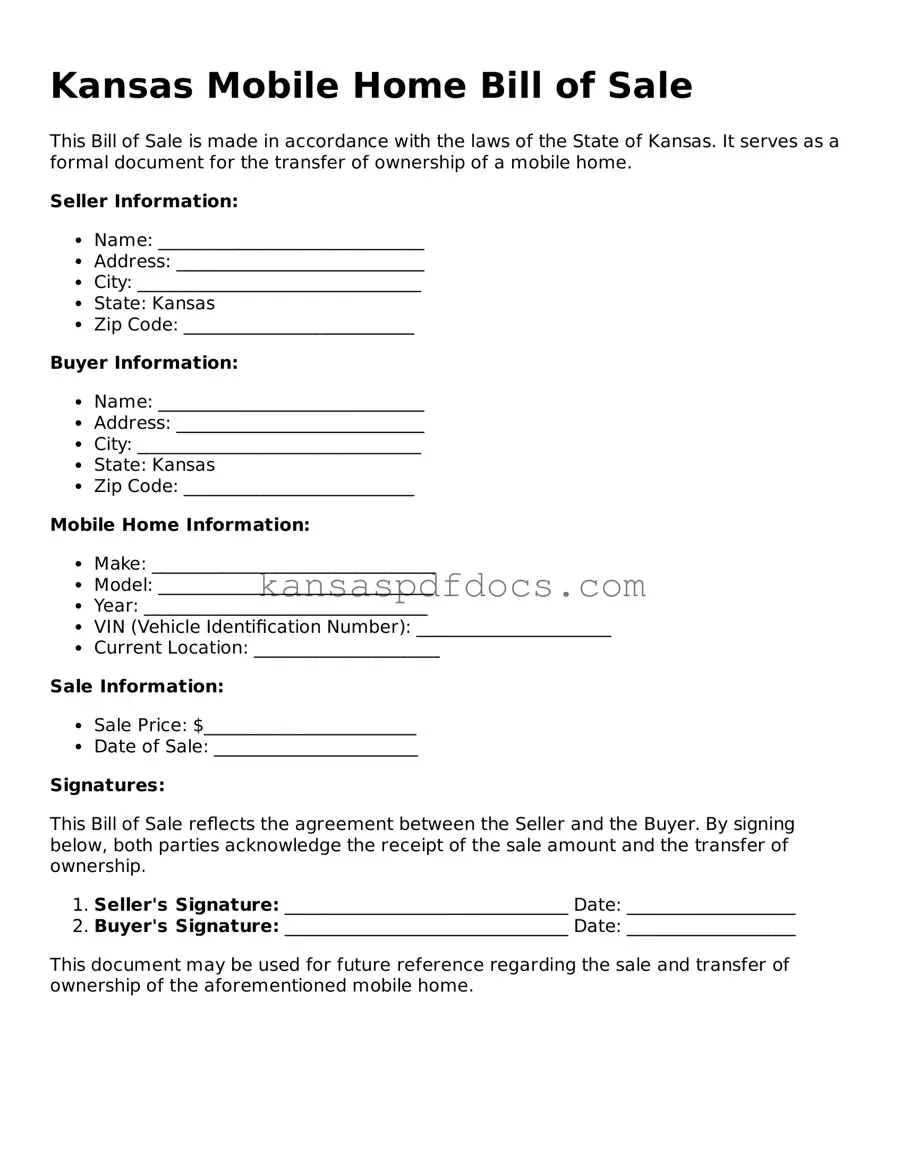Valid Mobile Home Bill of Sale Template for Kansas State
The Kansas Mobile Home Bill of Sale form is a legal document that facilitates the transfer of ownership of a mobile home from one party to another. This form outlines essential details, such as the names of the buyer and seller, the mobile home's identification information, and the sale price. Completing this document ensures a clear record of the transaction and helps protect the rights of both parties involved.
Access This Form Now

Valid Mobile Home Bill of Sale Template for Kansas State
Access This Form Now
Your form isn’t ready yet
Edit and finalize Mobile Home Bill of Sale online without printing.
Access This Form Now
or
Get PDF Form
